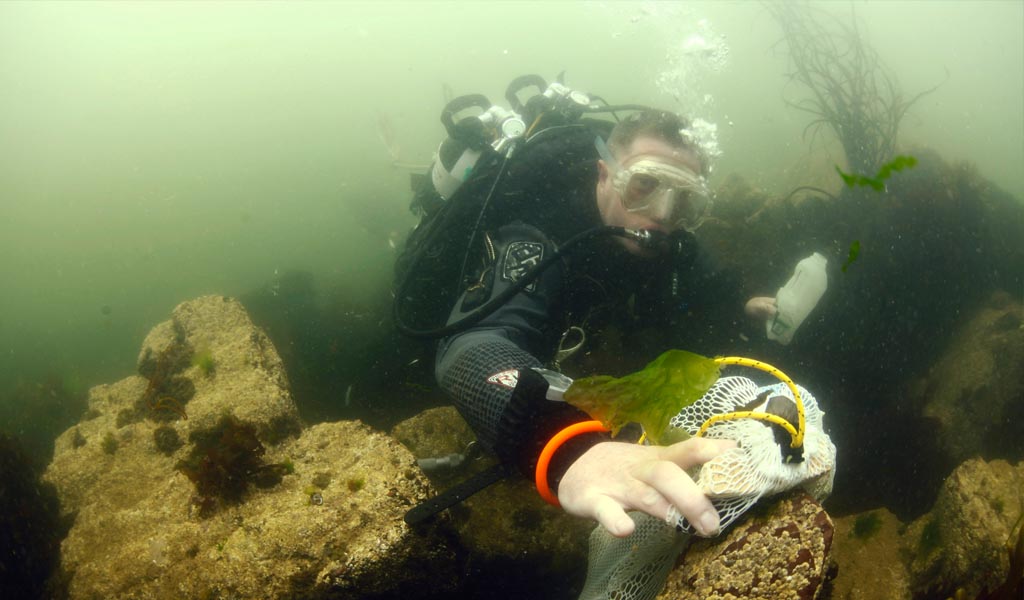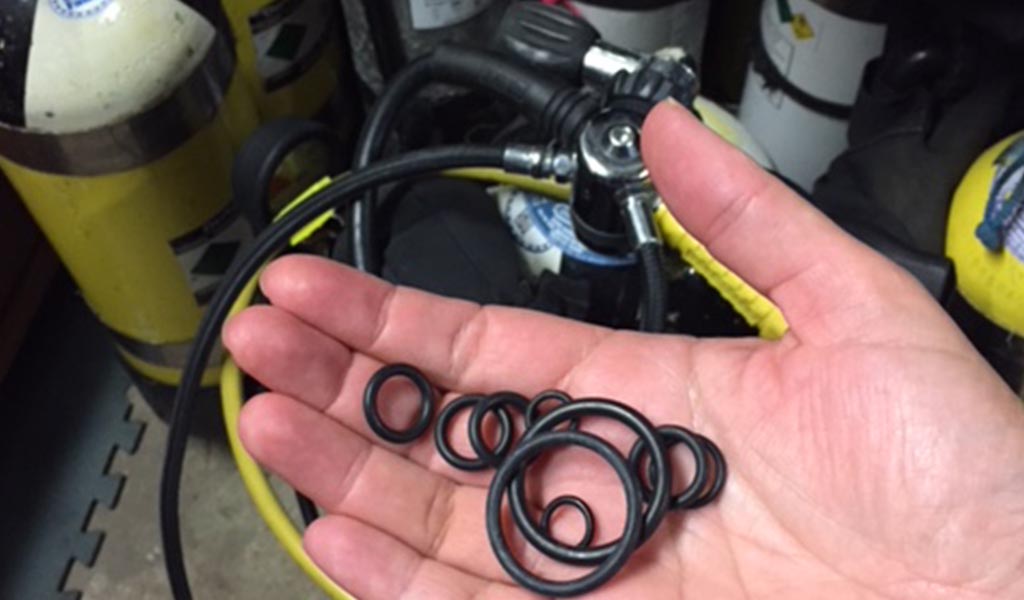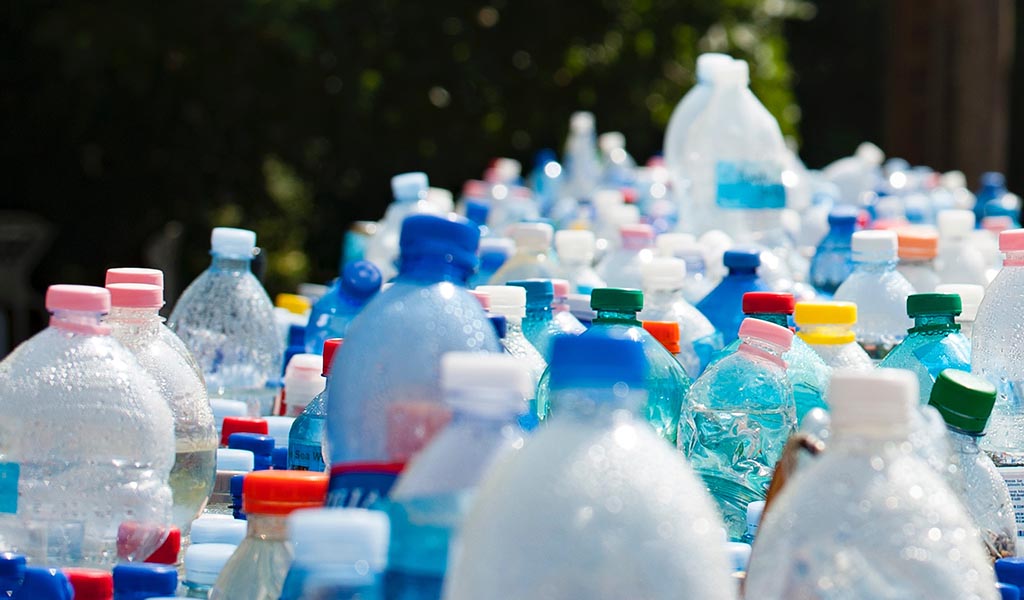
As a diver, it sometimes seems there’s no getting away from plastic. Many components of our kit are plastic-based and essential to the job at hand, but we are also acutely aware of the impact plastic pollution – especially single-use plastic – is having on the marine environment.
According to the Marine Conservation Society, some areas of our ocean contains six times more microplastics than plankton. This is a frightening statistic but together we can turn the tide on the amount of plastic debris reaching our seas.
A diver’s guide to plastic
Here are just a few simple ways as a diver you can help ‘sink’ the problem of single-use plastic….
On dive trips take only essential multi-use plastic (ie, your kit!) on to your RIB, hardboat or shore dive.
When it comes to single-use plastic on dive trips, adopt the ‘DIY, swap or ditch’ approach:
- Take a packed lunch in re-usable or recyclable packaging and swap that on-the-go latte for your own reusable coffee mug or flask.
- Keep hydrated with a reusable water bottle –ask the skipper if they provide water refills and try to avoid disposable plastic water bottles wherever you can. If it’s not possible, check the bottle before you buy to ensure it can be easily recycled…. but do try to re-use it for as long as you can.
- Try to avoid carton drinks and ditch the plastic straw altogether.
Don’t forget the ‘reduce, reuse, recycle’ mantra when it comes to your kit.
Every diver’s kit suffers from wear and tear and running repairs and replacements are the norm on any dive trip. Maintaining your equipment, repairing kit and recycling what you can to ensure that you still get your dive while helping to protect the environment.
- Look after your kit to prolong its shelf life. Kit maintenance is an essential part of every diver’s routine but don’t forget to pay attention to the perishable and throwaway parts such as neck and wrist seals, mask straps, fins straps, mouthpieces etc. Rinse them properly with fresh water after each use, keep lubricated (when needed) and dry (when storing) as well as out of direct sunlight and you should get plenty of good use out of them.
- Cable ties, o-rings, broken fin straps and on-board diver plastic waste can find their way into the sea – dispose of responsibly and check the deck before you leave the dive boat for any stragglers that may have been dropped (it doesn’t take much for them to be washed overboard).
- When the time eventually comes to replace, make sure you dispose of unfixable or no longer usable items or kit parts carefully. If you are upgrading and your old kit is still perfectly usable, pass it on – donate to your club or to new members who are looking to get going with their kit.
Working together as a club, pledge to reduce your collective use of single-use plastic, both on trips and socials.
- Simple changes such as switching to reusable water bottles, collectively ditching items such as plastic straws and recycling plastic water bottles and single-use plastics at the end of every dive trip can really add up.
- Add a ‘diving with a purpose’ twist to your dive plans – organise an underwater litterpick on a favourite dive site, plan a dive to retrieve discarded fishing gear from a wreck or encourage all members to ‘marine clean’ on every dive.
- Make the most of your diving ‘down time’ to clean up! Keep a lookout on your surface interval and scoop up any surface litter you may see or get the whole club, family and friends active in a topside beach clean.
- For further guidance, check out our BSAC Marine Clean online resources, which includes information on how to organise an underwater litterpick and essential advice on lifting licence requirements and risk assessments.
Away from the water, wherever possible cut down single-use plastic in your everyday.
Just a few simple tweaks and you will be surprised how you can make a positive change.
- Shop local – if you can get your new kit items from your local dive shop, you can also cut down on unnecessary packaging and waste.
- Plastic bags – just say no! Save your 5p every time you reuse one of your own bags and see how much you have at the end of the year.
- Get creative – look for alternatives to packaging, cleaning materials, toiletries etc. For some great ideas on alternatives to single-use plastics, check out the Marine Conservation Society’s easy to use Living without Plastic guide.
- Support marine environment charities by buying their plastic free products – Surfers Against Sewage, Bite-Back and the Marine Conservation Society to name just a few have some great ideas.
Join in the BSAC Marine Clean – collect, capture and upload your Marine Clean 2018 pictures and success stories.
From a photo of the litter you collect to a pic of your Underwater Litterpick or Beach Clean team in action, share your Marine Clean efforts on Instagram or Twitter using the hashtag #bsacmarineclean OR enter your Marine Clean photos using this form to show your support and be entered into the prize draw.
If you’re not a BSAC member you can still enter but please use the form so BSAC can contact you if you win.
You'll be in with a chance of winning an Apeks Regulator worth over £500! The winner will be selected at random after the 30 September 2018. View Marine Clean 2018 entries www.bsac.com/bsacmarinecleanpictures
Want to support BSAC's campaigning? The more members we have, the stronger our voice is.
Send your postcode to hello@bsac.com and we'll help you find the right scuba club for you. Or if you fancy a chat call us on 0151 350 6226 (Mon - Fri, 9 - 5:30).
You can also join BSAC Direct online today.





